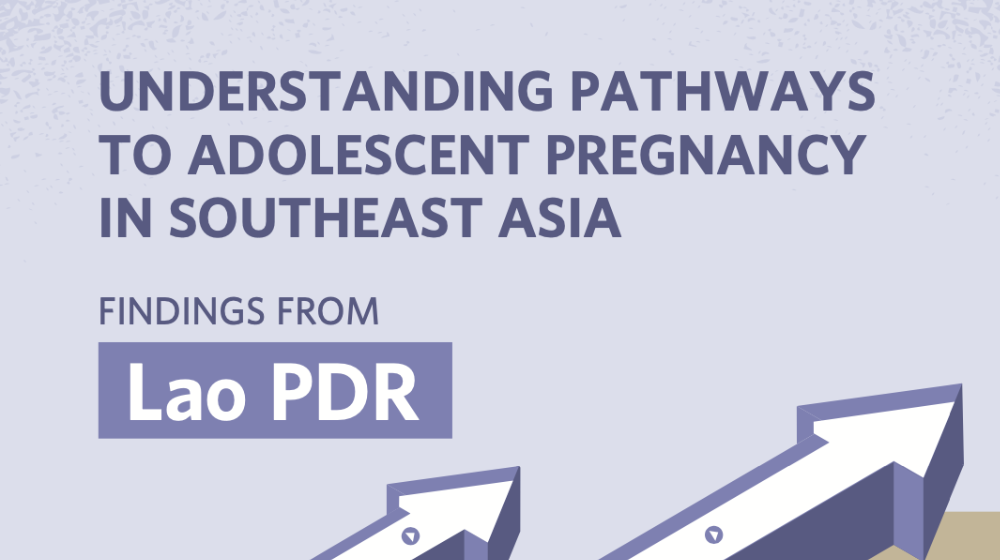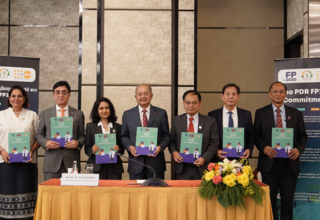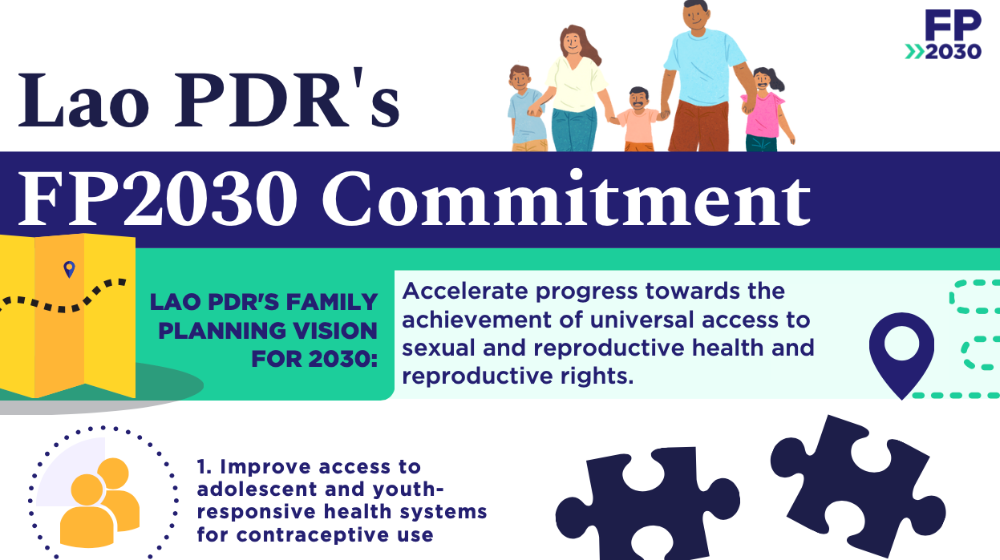FP2020 is a global partnership that supports women and girls to freely and independently decide whether, with whom, when, and how many children they want to have. The partnership with governments, civil society, multilateral organizations, donors, the private sector, and the research and development community aim to enable access to contraceptives to an additional 120 million women and girls by 2020. It coordinates the international efforts of its diverse participants, and helps to ensure that agendas are aligned, knowledge is shared and new cooperative strategies are pursued.
In Lao PDR, overall 20 percent of women would like to delay or stop childbearing but are not using any method of contraception. Unmet need is high particularly among young women, women with no education and the poorest women. Adolescent birth rate in Laos is highest among the region, 94 in 1,000 girls age 15 - 19 give birth.
Lao PDR was identified as one of the 69 priority countries of FP2020. Laos became the 37th country to have made a Commitment statement in the late 2015, and announced it during the International Conference on FP in Bali, Indonesia, in early 2016.
In its commitment, the Lao Government committed to increase the use of modern contraceptive methods from 42 percent to 65 percent by 2020. The current annual growth of modern contraceptive prevalence rate in Laos is 1 percent. To reach the goal, there needs to be 3.6 percent increase per year, each 1 percent point equates to additional 18,500 new users. Besides, the unmet need for contraception will be reduced from 20 percent to 13 percent by 2020, as well as the coverage and method mix for family planning services in health facilities expended, with a focus on long acting reversible contraceptive methods.
Investing in family planning will have a positive impact on socio-economic development. Not only does it provide individuals with the right to choose whether and when to have children, it helps to reduce poverty, improve health outcomes, and promote gender equality and the empowerment of women.
The government will lead different actors and sectors to work together toward the same goal to implement Lao PDR's commitment. Improving access and the use of modern contraceptives in Lao PDR by scaling up family planning interventions such as post-partum and post-abortion family planning, community based distribution, and mobile outreach will have a positive impact on the achievement of the country sustainable development goals
Access to safe, voluntary family planning is a human right. Family planning is central to gender equality and women's empowerment, and it is a key factor in reducing poverty. UNFPA works to support family planning by ensuring a steady, reliable supply of quality contraceptives; strengthening national health systems; advocating for policies supportive of family planning; and gathering data to support this work.
For more information please contact:
Vanly Lorkuangming - Communication Associate, UNFPA Lao PDR
Tel: +856 21 315547, 353048, 353049
E-mail: [email protected]
Website: http://lao.unfpa.org




